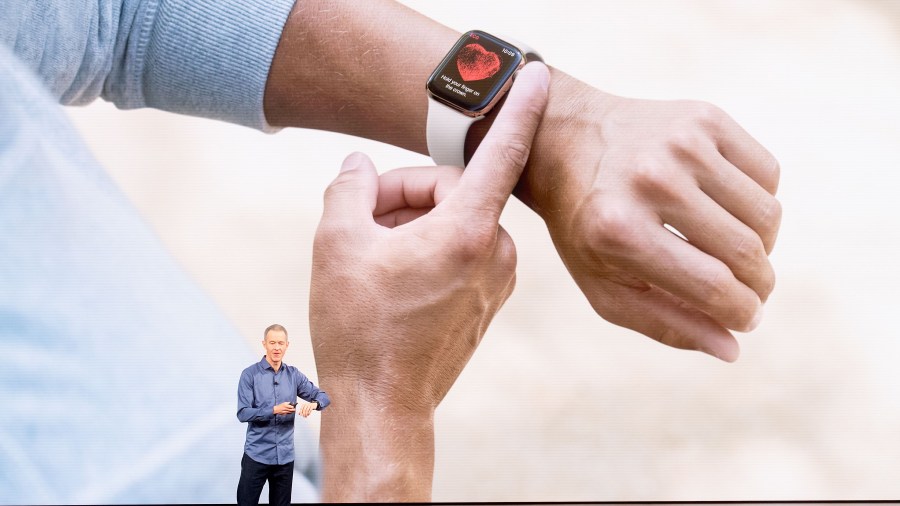Apple Health: Once the company’s ambition, now has stalled

On Fridays, our “Quality Assurance” segment takes a deeper look into a big tech story. This week: why several Apple employees are leaving the company’s Health division.
For a while in 2018, it seemed like Apple was going to upend the health industry. The company announced an app that could monitor your heart rate and detect irregularities. It was bringing your medical records to your iPhone. It even launched its own health care clinics for employees and families, which people saw as a trial balloon for understanding the industry.
But this week, CNBC’s Christina Farr reported that several people have left the Apple Health division. Host Molly Wood spoke with Farr, who said the employees were frustrated with the company’s lack of organization and ambition. The following is an edited transcript of their conversation.
Christina Farr: There’s definitely been some tension internally about whether to focus on those sicker patients who are definitely more costly to the system, or just to build more of these wellness tools for the everyday user, who may or may not deeply care or even need these products. When you have seen them say, “Let’s go into medical direction,” I think there’s also been tension about how they roll out those products. It may not make sense to have a splashy Apple launch, just like they do with any other tool or feature, for a product that is more medical in scope. Typically you see in the medical space, much more focused and targeted launches that include a lot of conditions and a lot of transparency. And that just really isn’t natural to Apple.
Molly Wood: Isn’t it fair to say, it shouldn’t be too much of a surprise that Apple wouldn’t necessarily pivot hard in the direction of overhauling the health care system? You could argue that its primary focus is to create features and/or services that sell hardware. That’s how it makes its money.
Many of these people either had a medical background, or they joined Apple Health because they had a personal passion for the space.
Christina Farr
Farr: Absolutely, and some employees recognize that. And perhaps those employees that remain happy at the company are thriving there. But if you’re a company like Apple, you’re one of the largest, if not the largest company in the world right now. There are ambitious people who want to do something more. Many of these people either had a medical background, or they joined Apple Health because they had a personal passion for the space. Maybe it was their own brush with the health care system or a loved one. They want to do something more. And so, for those people, I can imagine it being difficult.
Wood: Apple is not the only company who has tried to come at the health care industry in some way. And yet, it feels like a lot of those efforts have stalled. Do you think the tech industry runs into the health industry and goes, “Wow, this is way harder than we thought?”
Farr: Yes. And the culture between these two industries is so different. In medicine, the biggest idea that everybody believes in is that we should do no harm, which is a slightly conservative philosophy. In tech, it’s all about moving fast and breaking things. And these two visions for how to move forward don’t necessarily work when they’re pushed together.

Related links: more insight from Molly Wood
As for other big tech companies, representatives from Amazon, Alphabet, Apple and Microsoft, met with big health care providers in D.C. last month. A Yahoo story about the meetings rounds up the efforts by the four companies in the health care space, noting that Microsoft and Alphabet specifically are all about using artificial intelligence for future health care developments, whether it’s disease detection or reducing costs with better records keeping.
However, on Wednesday, the co-founder of Google’s AI lab called DeepMind was apparently placed on leave over some controversial projects. One controversy came in 2017 when a hospital in London was working with DeepMind on a project to help doctors diagnose patients who might be at risk of kidney problems. And you know how AI requires a lot of data. The hospital was accused of illegally sharing 1.6 million patient records with DeepMind.
A little plug here: Over at WIRED I’ve got a column this week about that exact problem. AI and machine learning need a lot of data to do things that can literally save lives, but we’re a little sketchy about handing it over these days because of stories like that one.
The future of this podcast starts with you.
Every day, the “Marketplace Tech” team demystifies the digital economy with stories that explore more than just Big Tech. We’re committed to covering topics that matter to you and the world around us, diving deep into how technology intersects with climate change, inequity, and disinformation.
As part of a nonprofit newsroom, we’re counting on listeners like you to keep this public service paywall-free and available to all.
Support “Marketplace Tech” in any amount today and become a partner in our mission.















